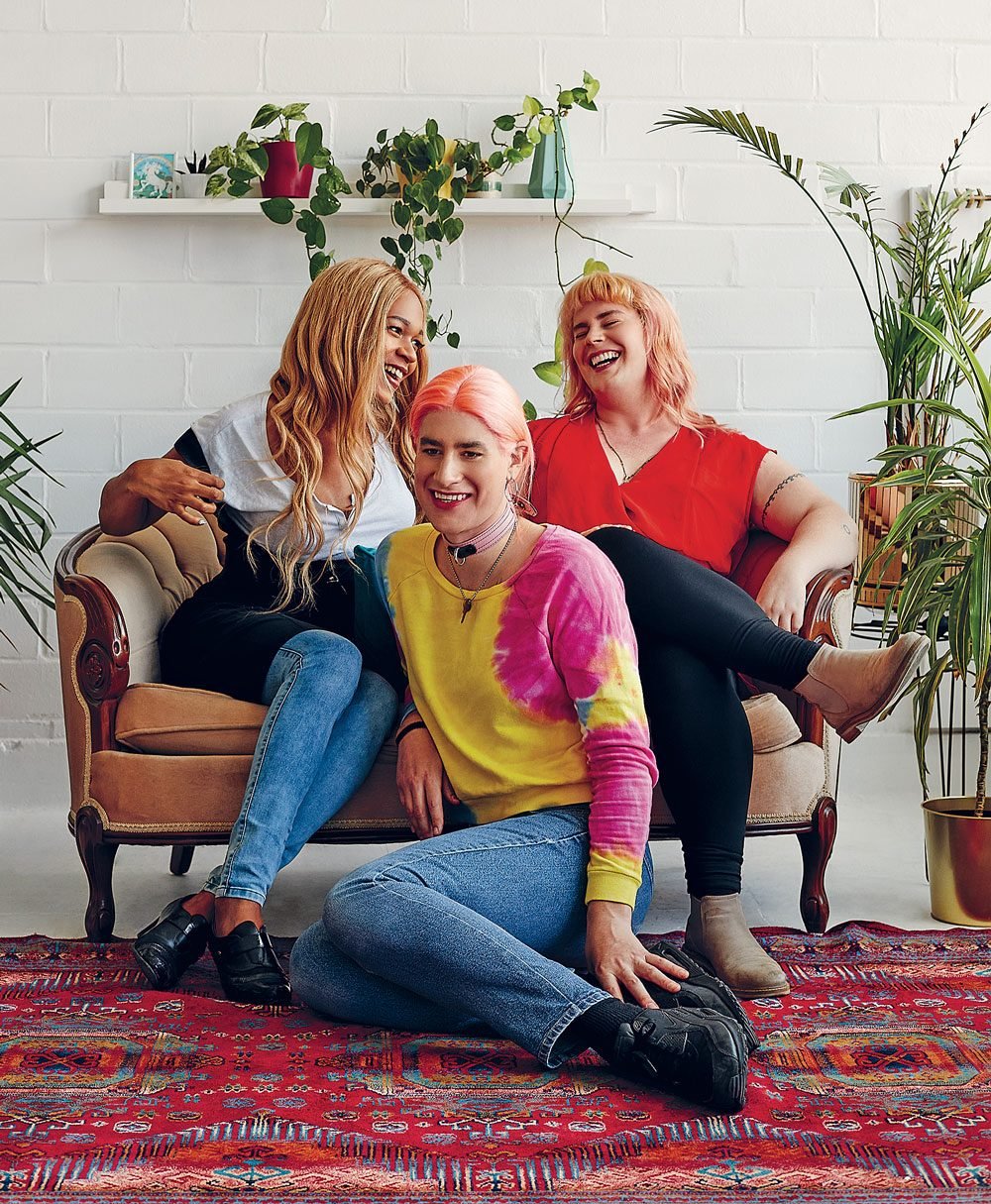How a House Party Inspired a Support Network for Trans Women
Taking What We Need skips bureaucracy and distributes funding directly to low income trans women in Montreal.

Canada’s transgender community has made many strides in the past decade: securing rights protections, getting elected to office and seeing themselves represented by central characters on popular shows. But it’s still far from easy to be trans in Canada. According to recent reports, 74 per cent of trans youth say they’ve been verbally harassed; in Ontario, the unemployment rate for trans individuals was nearly three times as high as the national rate; and trans people earn a median income of only $15,000 per year.
In 2015, three trans Montrealers, Estelle Davis, a comedian and writer; Lenore Claire, a stage performer and bartender; and Elle Barbara, a musician and community organizer, decided that it was up to them to create an effective support system for other trans people. Their organization, Taking What We Need, would provide discretionary funding to low-income transfeminine people—money for rent, food, transition-related costs or anything else they need to thrive.
The women knew from experience that the process of transitioning itself could be expensive. Facial feminization surgery, clothing, makeup and meetings with therapists, which many women seek out during their transitions, can be prohibitively expensive. Even laser hair removal, which some trans women seek for their faces, can cost four figures.
Claire, Barbara and Davis started by throwing a Titanic-themed party to raise funds for an at-home laser hair removal machine, which they’d lend to other women. They decorated each room to look like a set from the movie, and more than 100 people attended, bringing in $1,200. They were so overwhelmed by the response, they decided to forgo buying the machine and donated the money directly to low-income trans women they knew were in need.
TWWN has since hosted comedy and bingo nights, movie screenings, picnics and clothing swaps. All proceeds generated at the door are distributed to transfeminine people through their funding program. Before COVID-19 social distancing took effect, one of their monthly parties, Trans Amour, served as a social with an open mic and dancing. While attendees are predominantly LGBTQ+ people in their 20s and 30s, the crowd has steadily diversified. “People travel from all over to attend. We have had people fly in from Calgary or drive from Toronto,” says Davis. “It’s rare to see spaces that support trans women in this way.”
In addition to fundraising drives, the organization receives donations from individuals and funding from the Quebec Public Interest Research Group at Concordia University. “I don’t think we could ever continue running without the support and labour of a whole community,” says Davis, who spends about 20 hours a month coordinating their events and donations.
Today they’re able to provide funding to two trans women a month, while there are generally 40 on the wait-list. In 2017, Anaïs Zeledon Montenegro, who is 60 years old and an immigrant from Costa Rica, was one of those women. After transitioning, she was left unable to change her legal name until she became a citizen. And without documentation that reflected her transition, she had trouble securing a job and covering her rent.
TWWN provided her with a $700 lump sum. That helped her keep her apartment. She later took a job as a counsellor at Action Santé Travesti(e)et Transsexuel(le)du Québec, an organization that aims to promote the health and well-being of trans people.
Montenegro was inspired to see women within the community supporting each other. “It’s heartening to know that the organization gives others the same help I was able to receive.
Next, learn about the Toronto lawyer who’s transforming her industry by mentoring young Black women.



